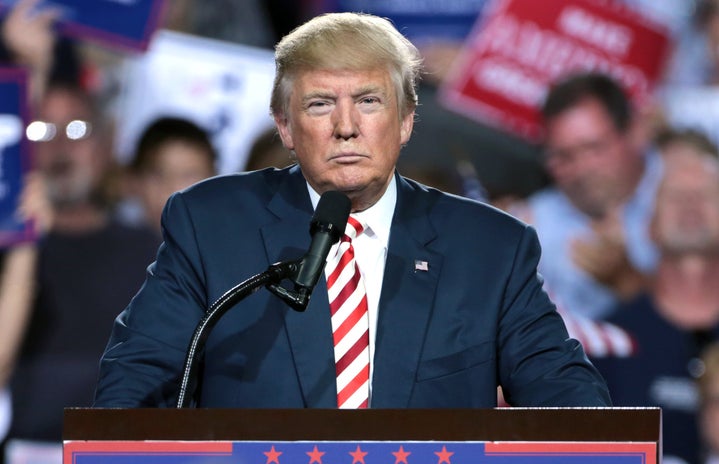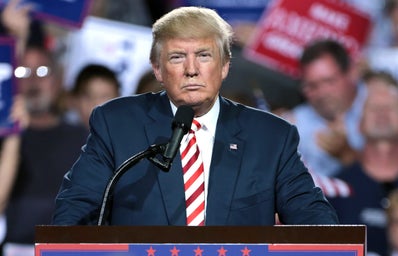The 2024 U.S. presidential elections marked a significant moment in the country’s political history. On one side, former President Donald Trump, a controversial figure and symbol of the conservative right; on the other, Vice President Kamala Harris, who emerged as the Democratic hope after Joe Biden withdrew from the race due to health reasons.
The race became a fierce battle that reflected the deep divisions in American society. Issues such as immigration, the economy, security, and civil rights were central topics in the debates. With Trump’s victory, America prepares for another four years of a conservative agenda that promises radical changes.
Trump’s first 4 years
During his first presidency from 2016 to 2020, Donald Trump brought an unconventional political style, focused on aggressive rhetoric and “America First” policies. He implemented tax cuts benefiting corporations, withdrew the U.S. from international treaties like the Paris Agreement, and promoted strict immigration policies, with the construction of a wall on the U.S.-Mexico border as a symbol of his administration.
Moreover, his combative relationship with the media and frequent use of social media to communicate directly with his supporters created a polarized environment. His often controversial statements, particularly regarding race and gender issues, strengthened his support among conservatives but alienated other groups both inside and outside the U.S.
The COVID-19 pandemic was one of the greatest challenges of his presidency. Trump’s response to the health crisis drew criticism both for the delay in recognizing the severity of the situation and for promoting unproven treatments. His reluctance to wear a mask in public and skepticism regarding health experts’ guidance intensified divisions, culminating in great polarization.
A criminal in the White House
Trump’s time in the White House was also marked by scandals and impeachment proceedings. The first one, in 2019, resulted from a phone call in which he allegedly pressured the Ukrainian president to investigate Joe Biden and his son, constituting abuse of power and obstruction of Congress. The second impeachment came after the January 6, 2021, Capitol invasion, where he was accused of inciting an insurrection. However, Trump was acquitted on both occasions by the Senate, which sparked a heated debate about partisan influence in legislative processes.
In addition to the impeachment, Trump faced several allegations of misconduct, including sexual harassment accusations from multiple women and civil lawsuits over financial fraud allegations. These scandals, instead of undermining his support, were seen by part of his base as unjust attacks from the media and the liberal elite, consolidating his image as an “outsider” persecuted by the establishment.
Joe Biden: the beginning of the end
After four years of governance, Joe Biden’s administration struggled to fulfill many of its campaign promises. Economic issues, such as rising inflation and fuel prices, were compounded by a criticized response to the U.S. troop withdrawal from Afghanistan, which caused a humanitarian crisis and damaged the U.S.’s image on the international stage. This episode, in particular, was interpreted by analysts as a symbol of the decline of American influence and marked a turning point for the opposition, who accused Biden of incompetence and lack of leadership.
Biden’s struggles paved the way for the rise of conservative leaders, setting the stage for Trump’s return and the emergence of other right-wing candidates. The divisions within the Democratic Party and Biden’s unpopularity among undecided voters led to the president’s decision not to seek re-election, transferring leadership of the Democratic campaign to his vice president, Kamala Harris.
A shot, a stumble, a victory
With Biden’s withdrawal, Kamala Harris assumed the role of Democratic candidate in a race full of challenges. Harris’s campaign struggled to unify the party and attract voters, while Trump, now a survivor of an assassination attempt during a rally, gained more sympathy among conservative voters. The attack, widely covered by the media, solidified his base’s support and created a wave of solidarity that boosted his campaign.
The result was an extremely contested election, with decisive victories for Trump in crucial states such as Georgia and Pennsylvania, securing his return to the presidency. Despite their efforts, the Democratic campaign failed to overcome internal divisions and the conservative narrative that resurfaced in recent years, resulting in a narrow defeat for Harris.
The global-view
Trump’s re-election was met with mixed reactions worldwide. Singer Cardi B, who had supported Kamala Harris, expressed her dissatisfaction on social media. “I hate you all,” she wrote in an Instagram story. Writer Stephen King, another supporter of the Democrat, expressed his displeasure with Trump’s victory on X (formerly Twitter).
There’s a sign you can see in many shops that sell beautiful but fragile items: LOVELY TO LOOK AT, DELIGHTFUL TO HOLD, BUT ONCE YOU BREAK IT, THEN IT’S SOLD.
— Stephen King (@StephenKing) November 6, 2024
You can say the same about democracy.
Actor Zachary Levi, best known for the DC franchise Shazam!, was very active on social media during the campaign period and declared his vote for Trump. “Now let’s all work together to heal what’s broken and make America great, healthy, and prosperous again,” he wrote on X after the victory. Among Elon Musk’s posts on the platform so far, two stood out: “The people of America gave Donald Trump a mandate for change, clear as crystal tonight” and “The future is going to be fantastic,” accompanied by a photo of a rocket. Musk is also the founder and CEO of the aerospace company SpaceX.
The future is gonna be fantastic pic.twitter.com/I46tFsHxs3
— Elon Musk (@elonmusk) November 6, 2024
Actress Lili Reinhart, known for Riverdale, who had supported Kamala, lamented Trump’s victory. “I can’t comprehend the feeling of the women who spoke out about [having suffered] sexual assault at the hands of Trump. Seeing millions of people vote for their harasser. My heart breaks completely for these women. I believe you and I’m so sorry,” she wrote during the early morning hours.
I cannot fathom the feeling of the women who came forward about their sexual assault at the hands of Trump. Seeing millions of people vote for their abuser.
— Lili Reinhart (@lilireinhart) November 6, 2024
My heart absolutely breaks for these women. I believe you, and I am so sorry.
“Congratulations on the greatest comeback in history! Your historic return to the White House offers a new beginning for America and a powerful restart to the great alliance between Israel and the United States,” said Israeli Prime Minister Benjamin Netanyahu in a post on X. Hungary’s Prime Minister, Viktor Orbán, a leading figure of the global far-right, made a similar statement: “The greatest recovery in U.S. political history! Congratulations to President Donald Trump on his huge victory. A much-needed victory for the world!”
The Hamas organization, in turn, stated that Trump would be tested and that the “blind support” of the U.S. for Israel “must end.” “This blind support for the Zionist entity must end, because it comes at the expense of our people’s future, as well as the region’s security and stability,” said Bassem Naïm, a member of Hamas’s political bureau, to AFP. “We ask that Trump learn from Joe Biden’s mistakes,” another Hamas source told Reuters.
The global response reflects the impact of Trump’s policies and the uncertainty his administration brings to international relations. In an increasingly polarized global scenario, the former president’s re-election reaffirms the weight of American politics in shaping global political directions.
Four more years of extremism
With his return to the White House, experts predict that Trump will adopt even more rigid policies on issues such as immigration and environmental regulation, aligning himself with right-wing populist leaders around the world. Political observers warn that Trump’s stance could intensify U.S. diplomatic isolation and undermine historic alliances. However, his supporters expect that economic and internal security policies will strengthen the country and restore its influence on the world stage.
Looking ahead to the potential years under a second Trump term, experts speculate on various trends and possible actions. A recurring theme is the impact that a second term could have on the functioning of democratic institutions and the balance of powers. Many analysts believe he could intensify efforts to weaken agencies and entities that criticize him or serve as checks and balances, such as the Department of Justice.
Jeffrey Goldberg, editor of The Atlantic, noted that the possibility of a second term could result in increased persecution of political opponents and an attempt to subordinate the judicial system to the ex-president’s interests. The magazine also addressed the possibility of Trump strengthening his power by appointing loyal figures to strategic positions, which could further destabilize the U.S. system of “checks and balances.”
Another point of analysis is the response from the population and civil movements to a second Trump administration. During his first term, activists and civil society significantly reacted to some of his policies, with large-scale resistance movements and protests. Observers believe that, in a second term, this activism could return even more organized, with more specific strategies aimed at curbing any attempt at authoritarian measures.
The New Republic suggests that if protests occur, they may be inspired by examples of civil resistance from other countries, focusing on peaceful protests and clear objectives, as seen in Israel’s response to Benjamin Netanyahu’s policies. This could include everything from general strikes to vigils in public places, with a focus on avoiding any provocation that would justify repressive actions.
Analysts further note that Trump is likely to continue focusing on nationalist and protectionist policies, including limiting immigration and implementing tax reforms favoring large corporations and the wealthy. He could also reverse environmental and regulatory measures, accentuating the U.S.’s distancing from international climate commitments. In summary, the expectation is that a second term under Trump could intensify trends already observed in his first administration, potentially shaping U.S. policies and political culture in a lasting way.
———————–
The article above was edited by Beatriz Gatz.
Liked this type of content? Check Her Campus Cásper Líbero home page for more!


